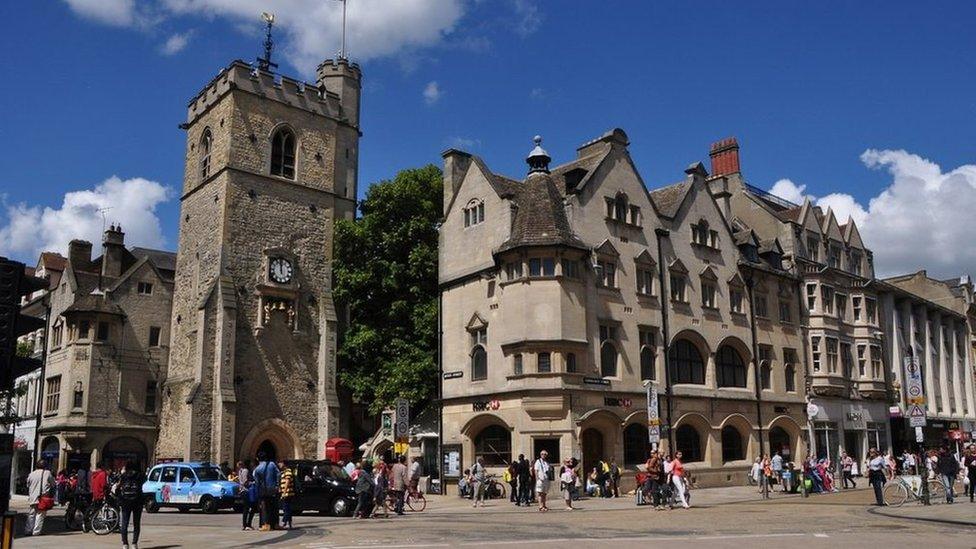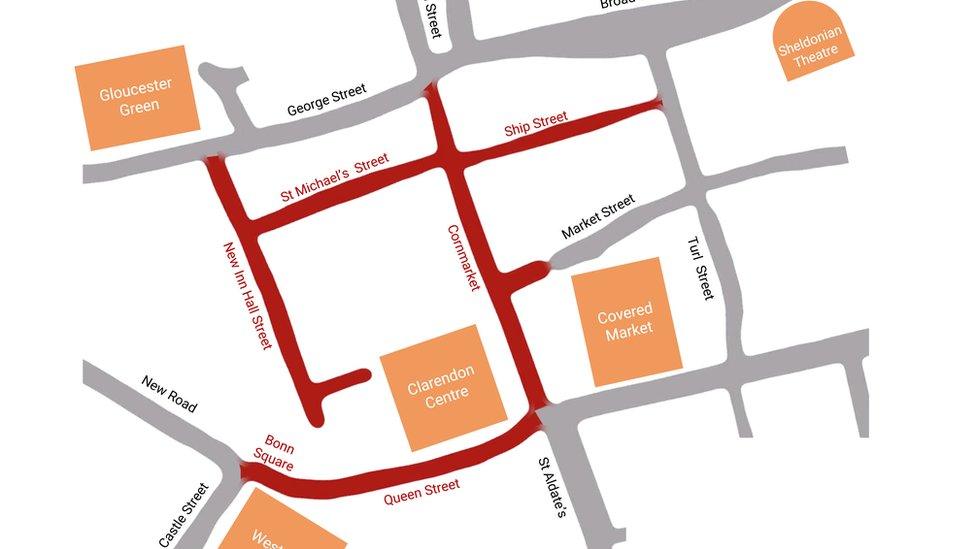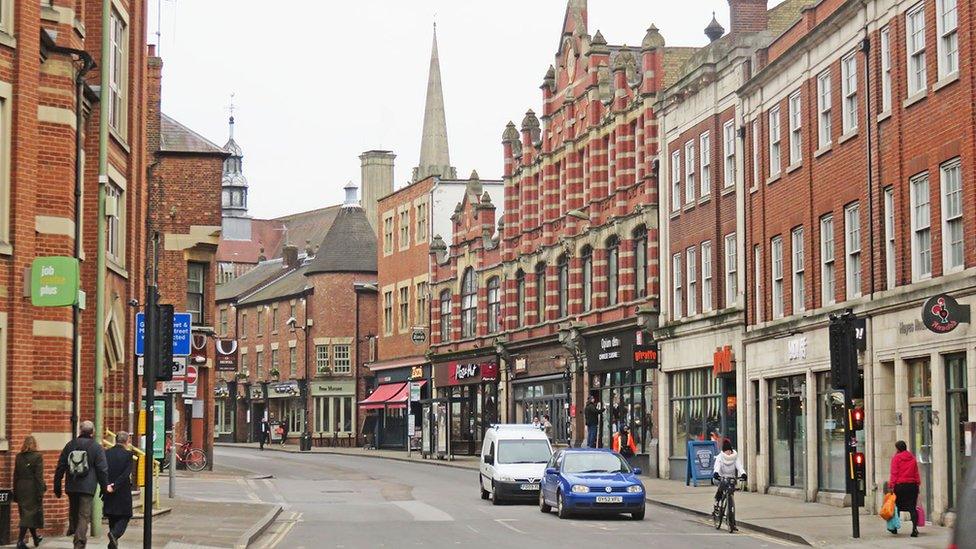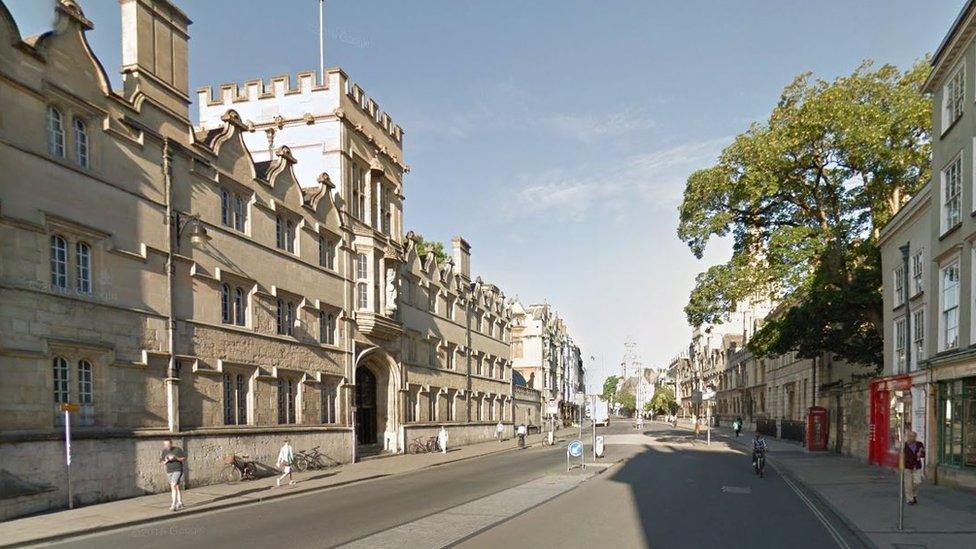Coronavirus: Oxford zero emissions zone postponed
- Published

Queen Street and Cornmarket Street are in the proposed red zone
The launch of a Zero Emission Zone (ZEZ) in Oxford has been postponed because of the coronavirus crisis.
The plans, which were the first of their kind in England, were due to launch in December.
Motorists not driving zero emission vehicles in the city centre were to face charges from February 2021.
The councils behind the scheme said people currently need to focus on managing "potential impacts on their trade and way of life".
A consultation was under way to gauge if there was support to rollout the ZEZ in an area known as the red zone affecting Cornmarket Street and Queen Street, two of the city's main shopping areas.
Oxford City Council and Oxfordshire County Council have now closed the consultation.
It will resume later in the year with a "view to implement the scheme in the summer of 2021", they said.

Under the plans motorists would be charged for driving in the red zone
In a joint statement the authorities said "during this period of uncertainty, businesses should not be expected to devote time to the detailed logistical planning required".
However, the two councils said they remain "wholly committed" to implementing it.
This week £150,000 funding was secured from Defra to purchase automatic number plate recognition technology to be used for the scheme.
The ZEZ was expected to cover much of the city centre, including the High Street and St Giles' by 2021 or 2022.
Non-zero emission vehicles using the zone between 07:00 and 19:00 would have to pay £10 per day, jumping to £20 per day in 2025.
People who did not pay the charge would be fined £120.
The councils have already proposed charging employers to use staff car parking spaces in an effort to cut congestion.
About 1,100 vehicles use roads in the red zone every day.
There would be discounts and exemptions for some residents and businesses in the zone.
- Published7 January 2020

- Published18 September 2019

- Published11 October 2017

- Published10 March 2017
